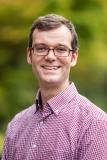At the end of September 2016, Alexander Massmann joined the Faraday Institute working on a project, in collaboration with Prof. Keith Fox, to explore the topic ‘Human Genome Modification and Human Dignity.’ A new method in genetics that has attracted an immense amount of attention in scholarly literature – and venture capital, too. With a biochemical complex called CRISPR/CAS9, researchers are able to make modifications in the DNA of organisms of all kinds, including humans. The precision and the relative ease of this procedure are unprecedented. While not yet in clinical use, the method is credited with a bright future in commercial and therapeutic contexts, but even in non-medical uses such as enhancing the capabilities of a healthy human person. For ethicists, this raises a wide range of questions about both the opportunities and the limits of legitimate human interventions.
His background is in theology and theological ethics. He holds a PhD from Heidelberg University, Germany, for a book dealing with the interaction of doctrine and ethics: a postdoctoral research project that engaged in the dialogue between evolutionary biology and the Christian doctrine of creation. He also gained a good amount of teaching experience in Germany.
Alexander says “Heidelberg, it turns out, is the twin city of Cambridge, and now my wife, our little son and I have had the good fortune of living in both of these vibrant historical centres. It is exciting to be part of the Faraday Institute, and I am looking forward to meeting many in the wider circle of collaborators and supporters.”




